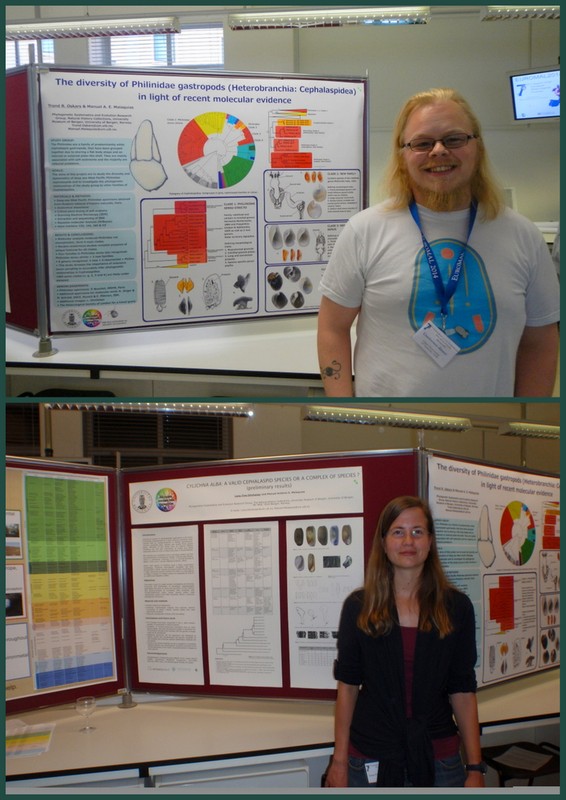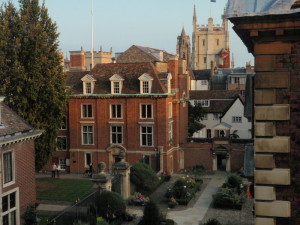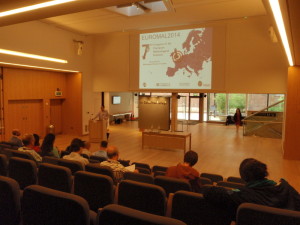During the second week of September (7-11.09.14) the 7th Congress of The European Malacological Societies were held at St. Catherine’s College of the University of Cambridge, UK.
The Colleges of Cambridge is a mashup of old venerable buildings and modern facilities, St. Catherine’s, founded in 1473, is no exception consisting of a brand new conference center and the main bulk of the college consisting of a quilt of buildings being pieced together since its founding, up to the 1900’s. The participants numbering around 150 researchers, converged on Cambridge from all around Europe, but also included travelers from more distant places like Vladivostok, Hong Kong and South Africa.
As the Congress was not the largest, all the presentations were held in the same Auditorium and each day had its own topic, everybody got to experience all the talks, opposed to running around to find the most interesting symposium, leading to the participants to sit and learn about interesting topics and studies they most likely would have missed out on. The small number of researchers also led to a more intimate atmosphere and many discussions with people from widely different malacological fields and academic levels.
The University Museum was represented by two posters, presented by Trond Oskars and Lena Ohnheiser. Trond presented the remaining part of his master thesis, with a poster on the molecular phylogeny of the non-monophyletic Philiinidae cephalaspid gastropods and Lena presented a poster on the status of the cephalaspids Cylichna alba as a species or a complex of species.


